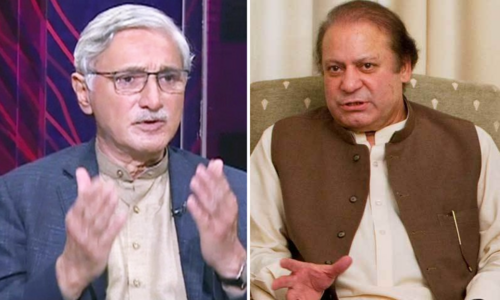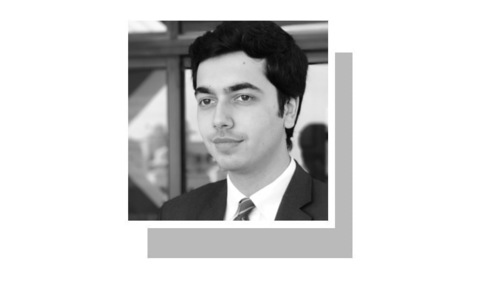ISLAMABAD: The Supreme Court Bar Association (SCBA) finally challenged on Friday the registrar office’s decision to return its petition requesting the apex court to revisit its earlier declaration that disqualification of politicians under Article 62(1 f) of the Constitution would be for life.
On Jan 29, the SC registrar office had returned the SCBA petition, declaring it not maintainable because a five-judge Supreme Court bench had already decided the matter in the 2018 Sami Ullah Baloch case.
The SCBA appeal called for setting aside the registrar’s decision and placing the matter before the apex court for final disposal of its original petition. The plea was filed by Advocate Mansoor Usman Awan on behalf of SCBA President Muhammad Ahsan Bhoon.
If the main petition of the SCBA is accepted by the apex court, the result can affect the outcome of its earlier verdicts disqualifying former prime minister and PML-N supreme leader Nawaz Sharif and former PTI leader Jahangir Tareen, as well as many others.
Mr Sharif and Mr Tareen were disqualified as lawmakers in judgements rendered in the Panama Papers case on July 28, 2017, and the Hanif Abbasi case on Dec 15, 2017, respectively. However, the period of their disqualification was not specified then.
The SC registrar office had returned the petition by highlighting that the petitioners has not pointed out as to what questions of public importance were involved with reference to the enforcement of any of the fundamental rights to directly invoke the jurisdiction of the Supreme Court under Article 184(3) of the Constitution. Besides, it observed, the petitioners were invoking extraordinary jurisdiction of the court for redressal of an individual grievance.
The SCBA appeal argued that the present constitutional petition related not only to the qualification for elections to the Senate but also to the qualification for a member of any representative/elected office, including the national and provincial assemblies.
Thus the questions raised in the petition satisfied the test for the public importance and to substantiate it, the appeal cited 1988 Benazir Bhutto and 1996 Shahida Zaheer Abbasi cases to explain that while interpreting Article 184(3) of the Constitution, the Supreme Court always advanced liberal approach in assessing whether a question of public importance had been raised or not. And while determining whether a question was of public importance, it said, the Supreme Court had also considered potential consequences arising out of the petition.
Regarding the enforcement of fundamental rights, the SCBA appeal explained that the apex court had held in the past that the infringement of Article 17 of the Constitution was sufficient to invoke the extraordinary original jurisdiction. Article 17 ensures the right to form a political party as well as the right to contest elections and form a government.
The SCBA argued that the present petition related to interpretation of Article 62(1)(f) in the light of the rights guaranteed under Article 17, read with Articles 4, 9 and 10-A of the Constitution.
“The text of Article 62(1)(f) is silent about the duration of the disqualification,” the appeal said, adding that attributing permanence or perpetuity to the disqualification was not provided for in the language of the Constitution and, therefore, it disproportionately curtailed the rights of candidates guaranteed under Article 17.
Moreover, it argued, the lifetime/perpetual disqualification restricted the electoral choice available to prevent the electorate of a constituency, be it for parliament, a provincial assembly or a local government, from electing candidates who had been permanently disqualified under Article 62(1)(f). This also deprives the citizens/voters of free exercise of the right to suffrage and of choosing their representatives in accordance with their will.
About the individual grievance, the appeal argued that the SCBA was an apex representative body of the legal fraternity and had a direct interest in a functional and vibrant democracy in Pakistan, adding that association also had several members who were current, former and potentially future members of elected bodies, including the Senate, National Assembly, provincial assemblies and local governments.
“As such the relief sought by the petitioner is not specific to any individual, but relates to every person interested in the representative democracy established by the Constitution,” the appeal argued.
Published in Dawn, February 26th, 2022















































